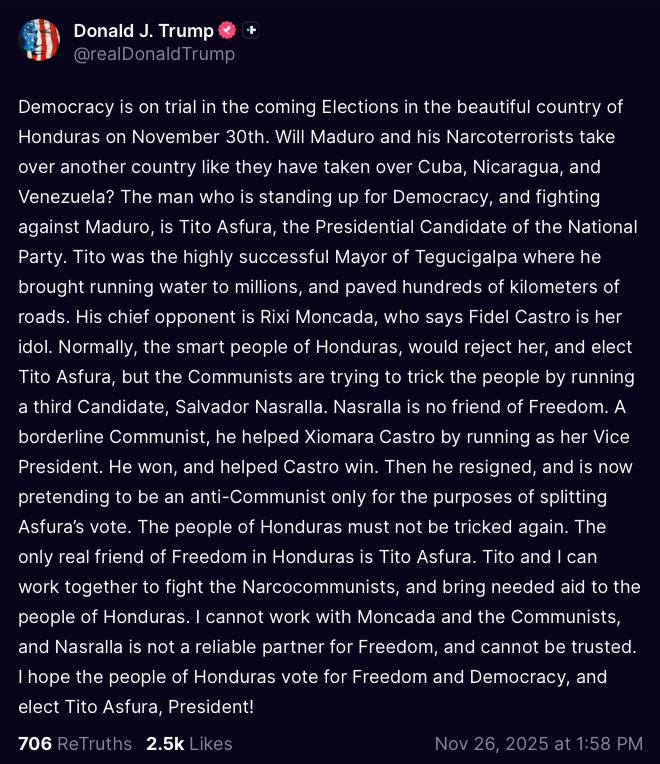Whiskey never signed a treaty; neither did cocaine, nor did covid. Yet, for over a hundred years, American politicians have declared “wars” on these abstractions with the same certainty that they declared wars on foreign nations. But, unlike wars against actual enemies, these crusades can never end in a victory because they have failed to realize that nouns cannot surrender.
This is the logic of what I call the noun doctrine: when governments frame their campaigns against abstractions like poverty, vice, risk, and so on, they create interventions that have no natural conclusion. Each failure justifies a larger budget, broader powers, and deeper interference into everyday life. The lesson is clear: wars on nouns are designed to be permanent.
Doctrine Explained
The noun doctrine begins with a simple truth: governments like enemies who can’t surrender. Armies can be defeated, treaties can be signed. We can even overthrow a regime 6,000 miles away from us if we put our minds (and enough borrowed money) to it. But poverty? Drugs? A virus? Those foes will never surrender and can’t be beaten, because abstractions don’t wave white flags.
This design produces three predictable outcomes. First, it produces goalpost drift. Something comically modest—“flatten the curve,” “reduce drug use,” swells into a pipe dream: “zero COVID,” “a drug-free America,” etc. Second is potency substitution. You don’t stop something by shutting it down; you make it worse. Prohibition pushed beer aside for moonshine. The War on Drugs turned weed into fentanyl. Third is the enforcement ratchet. Ironically, every failure justifies more intervention—more money, more agents, more rules—always in the name of chasing the abstraction just a bit longer.
Mises and Hayek warned us of this pattern. Any intervention introduced to action creates unintended consequences in opposition to the action and goals of said intervention. Central planners lack the knowledge to manage complex social behavior. And, at the root, poverty, vice, and risk aren’t hostile armies but the product of human behavior. Categorizing them as enemies ensures one thing: the war never ends.
Example #1: Prohibition
The first great experiment in fighting a noun was prohibition. One of the deepest thinkers of his time, Congressman Andrew Volstead, supplied both the name and logic of the law. His logic sparkled with simplicity: ban alcohol and drunkenness will disappear. It was political chemistry: remove the liquid, dissolve the vice. Regrettably, reality was less cooperative. Homicide rates soared during the 1920s, organized crime reached industrial scale, and ordinary citizens were now criminals.
Entrepreneurs didn’t vanish; they adapted. Legal breweries failed, while bootleggers prospered. The courts no longer enforced contracts—gangsters with submachine guns did. Beer and wine—too bulky and mild for a black market—gave way to moonshine and bathtub gin: compact, potent, and dangerous. At the center of this new economy was Al Capone. Washington thought it was fighting alcohol; instead it had made a celebrity gangster. While politicians promised sobriety, Chicago became a battlefield.
That is Prohibition’s real legacy. Outlawing a vice didn’t eliminate it; it restructured it around violence and profit. The dream was an America, safe and sober. What we got was speakeasies, shootouts, and an enforcement bureaucracy that grew fat on failure. The noun doctrine had already been established: moving goalposts, stronger substitutes, and every setback answered with more force.
Example #2: The War on Drugs
If prohibition was a sprint, the War on Drugs became a marathon without a finish line. President Nixon launched it in 1971 with great clarity: drugs were declared “public enemy number one.” Half a century later, the “enemy” still hasn’t surrendered, but the government has its very own, brand new, domestic army.
Unlike Prohibition, which simply handed Chicago to Capone, the War on Drugs has reshaped entire nations. Colombia and Mexico both became theaters in America’s war on a noun. Foreign policy blurred into narcotics policy; allies were armed and enemies were created. Cartels became mini-governments—levying taxes, running welfare programs, and fielding militias—precisely because their product had become unimaginably profitable.
At home, the effects were just as destructive. The number of Americans behind bars multiplied tenfold, civil asset forfeiture became routine, and local police departments came to resemble paramilitary units. A generation of citizens grew up knowing that a no-knock raid could arrive in the middle of the night, not for murder, but for marijuana.
This is the unique legacy of the War on Drugs: not just crime and corruption, but the normalization of a permanent state of exception. It taught the government that fighting abstractions is the perfect justification for continuously expanding their power. In that sense, it is not a failed policy at all—it is a successful bureaucracy.
Example #3: Covid
Covid marked the point at which governments realized they could stop life with a slogan. “Two weeks to flatten the curve” turned into months of lockdowns, curfews, and closed schools. The target kept dancing—“slow the spread,” “zero covid,” until it was clear that the target itself was the policy. A virus that mutates forever gave politicians the perfect enemy: one that could truly never surrender.
The economic damage was staggering. Trillions in output lost, millions of small businesses gone, jobs were erased. But the deeper wound was cultural. People learned that their “unalienable” rights could be taken away, not for violating a law, but for disobeying a mandate. Refuse a vaccine and you weren’t just unemployed—you were branded as reckless, selfish, unfit for society. Dissent wasn’t debated; it was smeared. Compliance was the new civic religion, and non-believers were excommunicated.
This was the noun doctrine at full maturity. It was no longer about fighting alcohol or drugs. It was about disciplining people themselves—making so-called “public health” a permanent way to police behavior, speech, and even your employment. For the first time, millions saw that freedom was no longer a guarantee, but a conditional privilege.
Synthesis and Conclusion
A century apart, these experiments tell the same story. Prohibition created Capone, the Drug War created cartels, and covid contributed to the normalization of emergency. The objects change—alcohol, narcotics, pathogens—but the structure remains fixed. When the state declares war on an abstraction, it discovers the formula for perpetuity.
The first step is the goalpost drift. Promises are modest at first—reduce drinking, “slow the spread”—but abstractions are bottomless. What cannot be measured cannot be finished, so the target inflates until the crusade justifies itself.
The second is potency substitution. Suppression doesn’t eliminate behavior; it redefines it into sharper forms. Beer yielded to moonshine, marijuana to fentanyl, and “precautions” to firings and passports. The attempt to extinguish vice or risk instead concentrates it into its most corrosive expression.
The third is the enforcement ratchet. Every shortfall produces its own cure: more agents, more prisons, and more mandates. Each failure becomes the evidence for escalation. This is not malfunction, it is design. A war without an enemy that can surrender is a war without an end.
This is the essence of the noun doctrine. Abstractions are not chosen by accident, they are chosen because they cannot yield. The impossibility of victory ensures the permanence of command. Failure is not the barrier, failure is the system.
Wars on nations can end with treaties, but wars on nouns never end. A century of experiments show the same pattern: when the state chooses enemies that cannot surrender, it chooses wars that cannot end. These were never failures of policy; they were displays of power. Each collapse justified expansion and each defeat guaranteed escalation. The slogans changed, the objects shifted, but the lesson endured: failure is not the opposite of success, failure is the strategy. Thus, freedom isn’t stolen in one blow. It is eroded noun by noun, mandate by mandate, until crisis becomes ordinary life. The only cure is recognition: abstractions cannot be conquered, but instead, liberty can be achieved.




























